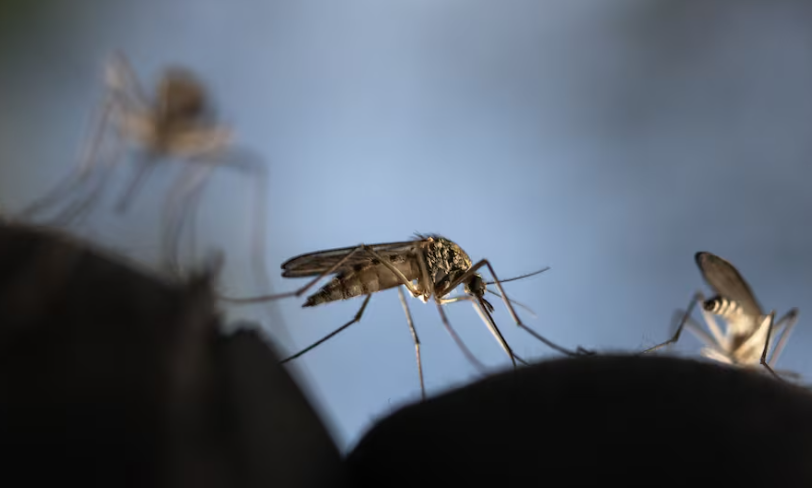Although rare, the virus carried by mosquitoes is deadly; around 30% of infected individuals pass away, and many of the survivors continue to experience neurological issues.
Almost a dozen towns in Massachusetts are on high alert due to a rare but fatal disease that mosquitoes are spreading. As a result, several towns have closed their parks after nightfall, limited outdoor activities, and rescheduled public events.
This month, health officials in Massachusetts verified that a man in his 80s, who had been exposed in Worcester County, west of Boston, was the first person in the state to contract the eastern equine encephalitis virus this year. Health authorities said on Saturday that ten areas have been classified as being at high or critical risk for the infection. Since mosquitoes are most active from dark to morning, Plymouth, which is roughly 40 miles south of Boston, shuttered all public parks and fields during this time. Oxford, a nearby town, outlawed all outdoor activities on town land after six o’clock.
The commissioner of the state’s department of public health, Robbie Goldstein, stated in a statement that “we have not seen an outbreak of EEE in Massachusetts for four years.” “To lower danger and safeguard our communities, we must make use of all the resources at our disposal. We expect each person to contribute in some way.
The Centers for Disease Control and Prevention state that a virus that spreads through the bite of an infected mosquito is the cause of eastern equine encephalitis. Though uncommon, the virus is quite dangerous: over 30% of infected individuals pass away, and many of the survivors continue to have neurological issues.
According to The Washington Post, the viral breakout in Massachusetts coincides with an extended mosquito season nationwide. Global temperatures are rising due to climate change, and in almost two-thirds of the US, this has resulted in a rise in “mosquito days,” or days with temperatures between 50 and 95 degrees and an average humidity of at least 42%.
The Northeast has had the largest rise in mosquito days and has warmed more quickly than the rest of the nation. Compared to the years 1980–2009, there had been an average of 14 more mosquito days in Massachusetts.
Researchers caution that extended mosquito seasons may increase the likelihood of disease outbreaks like dengue and malaria, which are spread by the bloodsucking insects.
To reduce the number of cases of eastern equine encephalitis, Massachusetts health officials announced that Plymouth and Worcester counties will be sprayed with mosquitoes between sunset and morning this week.
The EEE virus-carrying mosquitoes will be the target of aerial spraying. In order to protect our community, everyone must exercise caution and adhere to personal safety precautions, even though these steps are critical for lowering the risk of transmission, according to a statement from Massachusetts Department of Agricultural Resources Commissioner Ashley Randle.
In order to avoid the hours between dark and morning, residents are advised to reschedule outside activities, wear clothing that covers skin, apply mosquito repellents, and remove standing water near their homes.
A person infected with the virus may have fever, headache, nausea, diarrhea, convulsions, altered behavior, and sleepiness. Neither a particular therapy nor a vaccination exists to prevent eastern equine encephalitis.
Twelve human cases of the virus were reported in Massachusetts in 2019. There were six fatalities. The state health service reported that there were five human cases and one fatality in the following year.
Jennifer M. Callahan, the town manager of Oxford, stated in a note on Wednesday that she has communicated with the family of the patient who contracted the virus this year and is still battling it in the hospital.
According to the family, “their loved one with EEE was the only one in the family who recounted through the years they never get bit by mosquitos,” according to Callahan. But just before he started showing symptoms, he revealed that he had lately been bitten.
Regardless of whether the patient survives, Callahan stated, “They want people to be aware this is an extremely serious disease with terrible physical and emotional consequences.”
